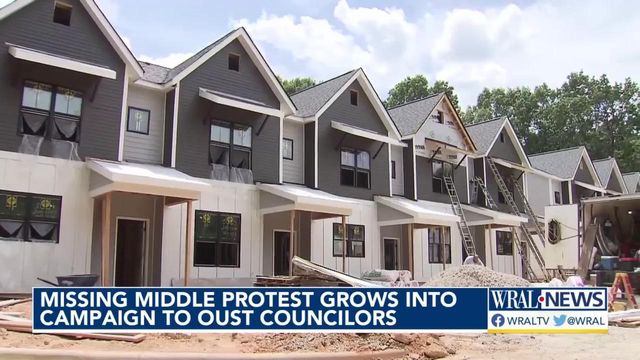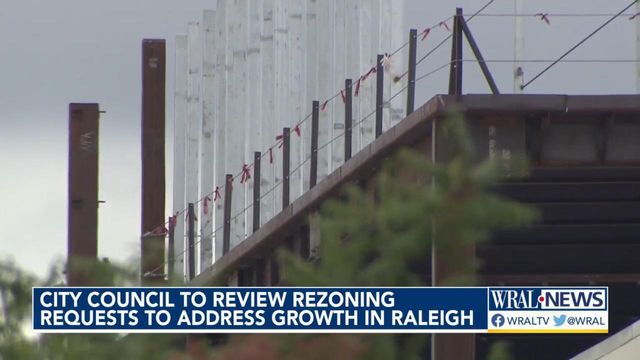Grassroots group shares concerns over Raleigh plans for tall buildings, affordable housing
The Raleigh City Council is on the verge of approving more housing and businesses, and some neighbors are ready to speak out against the plans in place.
Posted — UpdatedThe Save Our Neighborhoods Restore Raleigh’s Zoning group claims the incumbent councilmembers are allowing developers to destroy neighborhoods of single-family homes.
Frank Hielema is on the steering committee for Save Our Neighborhoods.
“I refer to this project as ‘the canary in the coal mine,’” Hielema said. “It woke us up and is now waking up other neighborhoods in the city.”
Save Our Neighborhoods has yard signs across city neighborhoods to increase awareness. The group has also formed a political action committee to replace incumbent city councilmembers.
“They have declared war on single-family neighborhoods,” Hielema said. “We are declaring war on [the] city council.”
Similar developments are in progress across Raleigh. Last month, at least 19 rezonings were approved to allow tall buildings. Another 19 proprosed rezonings are under review, most in downtown Raleigh, Midtown/North Hills and Brier Creek.
During the COVID-19 pandemic, the Raleigh City Council changed the city’s zoning code to allow for smaller homes on smaller lots and denser development near high-frequency transit. The concept, called missing middle housing, is a cross between single-family homes and large apartment buildings, according to the city.
The changes allow duplexes, townhomes and small apartment buildings in more neighborhoods and on smaller lots across Raleigh. It creates more affordable housing options.
They also save on energy costs. According to the city of Raleigh website, "Because missing middle units share walls or ceilings with other units, they are substantially more energy-efficient than detached houses. According to the Department of Energy, a unit in a two-to-four-unit apartment uses half the energy of a detached house, and a townhouse uses about two-thirds of that amount."
Although some people are not happy with the recent changes allowing for taller buildings and missing middle housing, Mayor Mary-Ann Baldwin pointed out that affordable housing is an increasing challenge for the city.
“If you can build three townhomes instead of one home, we have now housed three families,” Baldwin said. “If you can build a duplex, we’ve housed two families instead of one in a McMansion.”
Baldwin supports the missing middle changes to increase the supply of housing. She said it’s something previous councilmembers have failed to address.
“They tried to stop growth,” Baldwin said. “There is no such thing as stopping growth. People are coming here.”
Election Day is set for Nov. 8. The early voting period runs from Oct. 20 through Nov. 5.
“The citizens do not understand what has happened to their zoning,” Hielema said. “The only way to address it is through the ballot box.”
• Credits
Copyright 2024 by Capitol Broadcasting Company. All rights reserved. This material may not be published, broadcast, rewritten or redistributed.






